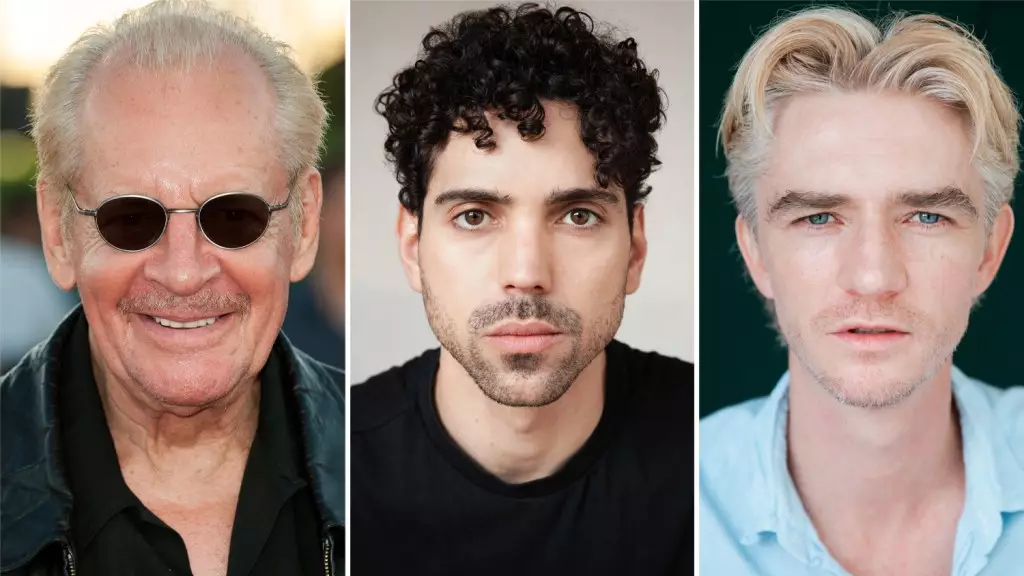The world of documentary filmmaking often serves as a powerful medium to explore diverse social narratives and personal stories. One such intriguing project is the upcoming documentary “It Was Them,” which has garnered attention not only for its content but also for the collaboration of notable filmmakers working behind the scenes. With Larry Clark, the celebrated director known for his raw depictions of youth culture, joining as an executive producer, the film embarks on an ambitious exploration of the lives of four Indigenous-Latino friends from South Central L.A.
The film’s directors, Edgar Morais and Luke Eberl, have established themselves in the industry with previous collaborations, such as their award-winning short “We Won’t Forget.” By harnessing their distinct styles, the duo aims to express the multifaceted experiences of Jonathan Velasquez, Eddie Velasquez, Frank Navarrette, and Carlos Ramirez as they navigate the complex streets of Paris. The narrative, which spans over a decade, promises to encapsulate the highs and lows of this nomadic lifestyle, ensconced with the crux of their musical journey.
One of the most captivating aspects of “It Was Them” is the original soundtrack featuring the musicians themselves. This aspect authenticates the film’s portrayal, allowing the subjects not just to tell their own stories but to embody them through their music. Music has always played a critical role in articulating identity, serving both as a source of comfort and a method of expression for marginalized communities. For these friends, the soundtrack is more than just an auditory experience; it represents their struggles, aspirations, and the rich tapestry of their cultural backgrounds.
In today’s globalized world, such narratives are often overshadowed by mainstream media. “It Was Them” seeks to disrupt this trend by highlighting the experiences of those who undoubtedly fight for recognition and understanding while seeking to establish their place in a foreign land. These themes not only resonate on a personal level but also reflect broader societal issues including immigration, assimilation, and the quest for belonging.
The project is characterized by the impressive lineup of producers and co-producers from various national backgrounds—U.S., Portugal, and Germany—each contributing their unique perspectives and expertise to enhance the film’s authenticity and artistic merit. Sol Tryon’s previous association with filmmaker Sean Baker, along with the accolades associated with Rodrigo Areias and the co-producing efforts of Andre Hörmann and Max Milhahn, enrich the storytelling landscape of “It Was Them.” Their collective experiences bring depth to the documentary, ensuring it stands out in both narrative and visual storytelling.
In discussing the production’s collaborative nature, it is essential to recognize that filmmaking is not a solitary venture. Each individual’s contributions, from director to producer to cast, create a mosaic of creativity that ultimately enriches the cinematic experience. The inclusion of other artists who have a passion for representing the complexities of youth culture adds authenticity to the project, ensuring it resonates with a wide audience.
Larry Clark: A Celebrated Visionary
Larry Clark’s involvement further elevates the stakes of this project. Clark, revered for his candid depictions of youth and themes like addiction and rebellion, brings considerable gravitas to the documentary. His previous works, such as “Kids” and “Bully,” underscore a narrative style that doesn’t shy away from the harsh realities of adolescence. By lending his voice and vision to “It Was Them,” Clark adds an invaluable layer of depth, helping guide the film’s exploration of cultural identity and the harsh realities that often accompany it.
As the documentary landscape evolves, the intersection of culture, music, and identity becomes increasingly vital. “It Was Them” not only fills a gap within this niche but also offers a blueprint for future projects aiming to shed light on the intricate lives of marginalized communities. With the combined talents of Morais, Eberl, Clark, and the musical participants, this documentary stands poised to offer insights that resonate far beyond the screen, engaging audiences in a conversation about identity, resilience, and the pursuit of belonging in an ever-complex world.
In a world hungry for diverse narratives, “It Was Them” could be a shining example of how film can transcend entertainment to become a vehicle for empathy and understanding.


Leave a Reply